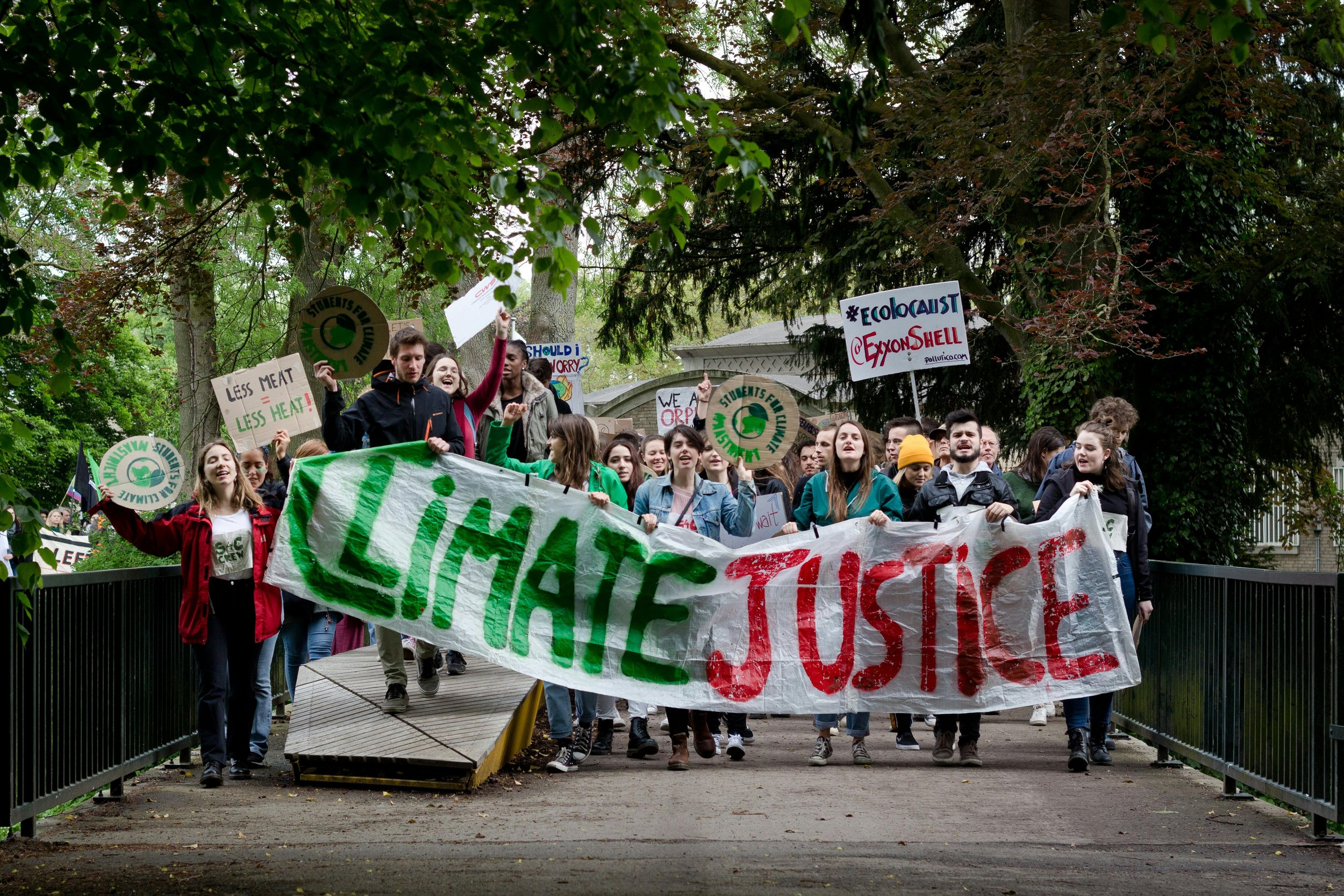COP27 and Gender Equality: What to Expect
By Taís Serra Montani and Annia Kline, Communications Officers at EmpoderaClima
COP27 is starting in Sharm El-Sheikh, Egypt. Demands for gender equality in the climate negotiations are high, as in last year’s conference, women occupied only 33% of the constituted body positions. A similar trend was seen at COP25 and COP24, which points to the lack of progress for gender balance in the global climate space. The overrepresentation of men in the conferences so far have increased both the frustrations and the expectations for the start of the 27th COP this November. The so-called “African COP” may be the turning point for more ambitious efforts towards gender equality in climate action.
Gender and climate justice have an intersectional connection. Climate action and gender equality are increasingly common terms in the policy world, however, the interlinkage between these two concepts is constantly changing due to the deepened complexities of society and the impacts it faces as a result of climate change.
In short, climate justice acknowledges the unique vulnerabilities which underrepresented and minority groups face due to global inequality, and it identifies how these groups are, consequently, disproportionately affected by the climate crisis. For example, girls and women in many developing countries must help their families during periods of droughts, which results in them needing to stop attending school to fulfill these societal responsibilities.
In some cases, these women have to walk very long distances to access water, and the scenario of vulnerability gets worse once we add the intersectional identities of those who belong to the LGBTQIA+ community, and/or Indigenous and local communities. In terms of displacement as a result of climate change, women are 80% of the victims.
When we consider global climate negotiations, climate justice and gender equality should be at the center of international agreements. The global scenario of crises illustrates this need clearly: the COVID-19 pandemic has enhanced gender and social inequalities, by increasing poverty levels for women and girls around the world. However, there is still a large visible gap in tackling the intersectional aspect of gender inequality at global conferences, including the climate negotiations of the UN Climate Change Convention.
In 2022, since the the 56th UN Subsidiary Bodies Session (which took place this past June, and you can read more about EmpoderaClima’s participation here), the current developments of the climate crisis and its effects on the multiplication of inequalities have been fiercely discussed. The expectation for COP27 is that the gender discussions will only increase in depth and gravity, especially through the role of civil society.
COP27 represents a crucial opportunity for governments and decision-makers to walk the talk on climate justice and bring minority groups to these high-level spaces, in a direct effort to promote gender equality and social justice at the global level, particularly when it comes to climate mitigation and adaptation.
Specifically for this year, civil society in its various capacities (such as through the WGC - The Women and Gender Constituency of the UNFCCC), are expecting more ambitious outcomes for a renewed Gender Action Plan (GAP).
Some of the main demands for COP27, defined by women and gender civil society leaders, are:
Enhancing indigenous women climate leadership in the UNFCCC framework;
Ensuring a gender-responsive just transition to a low carbon economy;
Recognizing the impact faced by frontline communities, including women and girls, and indigenous people, with the increase in loss and damage;
Responding to the essential role women and girls play in promoting agro ecological models;
Acknowledging the lack of climate finance directed to indigenous women and communities;
Applying a social-just approach to climate action that includes sexual and reproductive health and rights – since climate change also affects the access women and girls have to these rights.
This year’s conference is set to be a milestone in the steps we must take to effectively address the climate crisis with a justice lens, and implement a gender-just transition. This transition is based on the guarantee that women will not be left behind in the transformation to a sustainable economy. The green economy we aim for has to be implemented with inclusion at the center, or the consequences of climate change can be made worse, exacerbating current inequalities at all levels.
Indigenous women and communities, in spite of representing only 6.2 percent of the worldwide population, protect 80 percent of remaining biodiversity, and 25 percent of land surface. Women and girls have a proportionally high participation in disaster recovery, small-scale agriculture, and social care roles. It is about time that we stop seeing women and girls, young activists, indigenous peoples, and the LGBTQIA+ community as only as victims of climate change. It is clear that they are active and effective agents of change for sustainable development.
Marginalized communities have flipped the script. They are promoting powerful solutions for environmental and climate risk reduction, mitigation, adaptation, and loss and damage. Their work is effectively addressing the main issues associated with the climate crisis, with resilience, justice, empowerment, and solidarity at the forefront.
EmpoderaClima has been working tireless with a youth-led and Global South-based team to empower more young people to join the climate justice space. Our team is at COP27, and we will be on site and remotely following the discussions around gender equality and intergenerational equity in climate policy.
You can learn more about our work for gender and climate justice in the negotiations by checking out our COP page, and you can also follow EmpoderaClima on Instagram and Twitter. Don’t forget to subscribe to our special newsletter to receive the latest updates on COP27!

